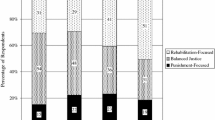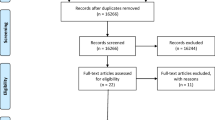Abstract
As the law/mental health field has expanded and matured in the last 20 years, the sophistication required by mental health professionals in order to respond appropriately to legal questions has grown significantly. Courts and legislatures define a growing number of legal competencies. Judges and attorneys are more familiar with mental health law than they were 10 or 20 years ago.
Similar content being viewed by others
References
Otto RK, Heilbrun K, Grisso T: Training and credentialing in forensic psychology.Behavioral Sciences & the Law 1990; 8: 217–232.
Zonana HV, Crane LE, Getz MA: Training and credentialing in forensic psychiatry.Behavioral Sciences & the Law 1990; 8: 233–248.
Spangenberg RL, Rose WJ, Kerpelman, et al.: Evaluation of the Massachusetts Court Clinic System: Final Report. Cambridge, MA: Abt Associates Inc., 1985.
Author information
Authors and Affiliations
Rights and permissions
About this article
Cite this article
Fein, R.A., Appelbaum, K.L., Barnum, R. et al. The designated forensic professional program: A state government-university partnership to improve forensic mental health services. The Journal of Mental Health Administration 18, 223–230 (1991). https://doi.org/10.1007/BF02518593
Issue Date:
DOI: https://doi.org/10.1007/BF02518593




